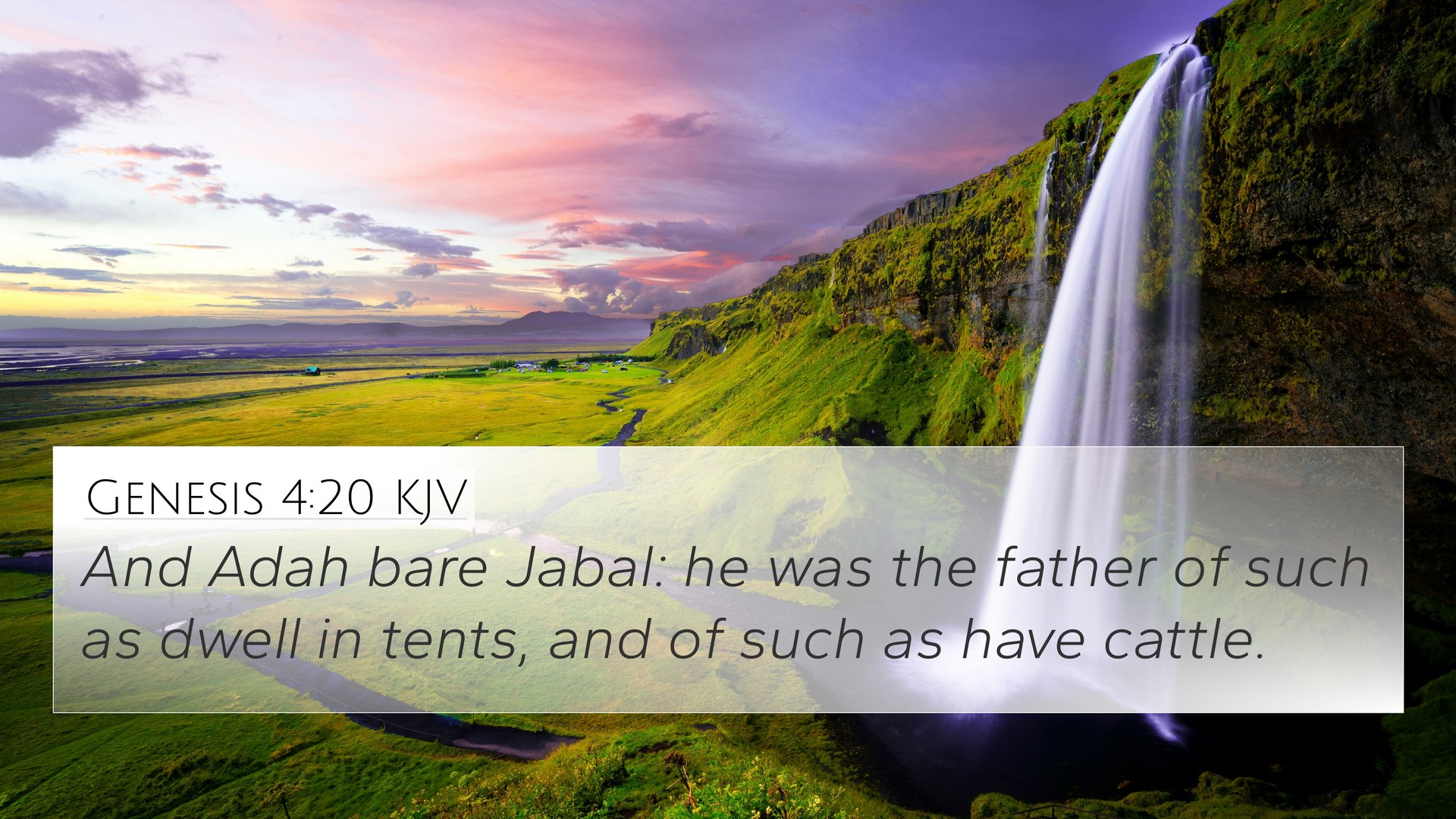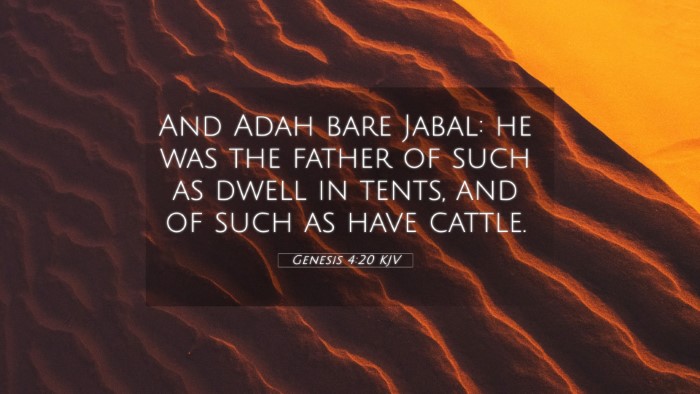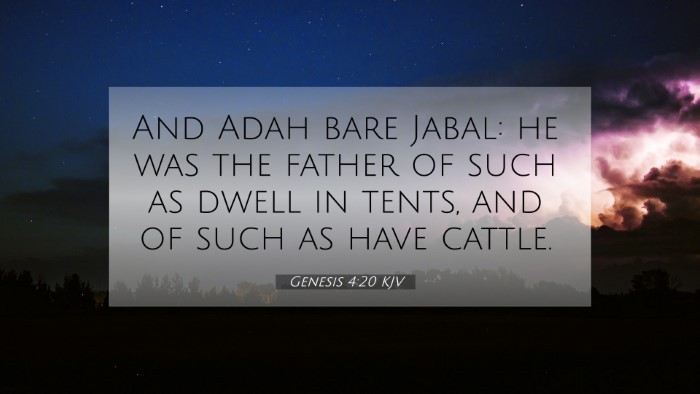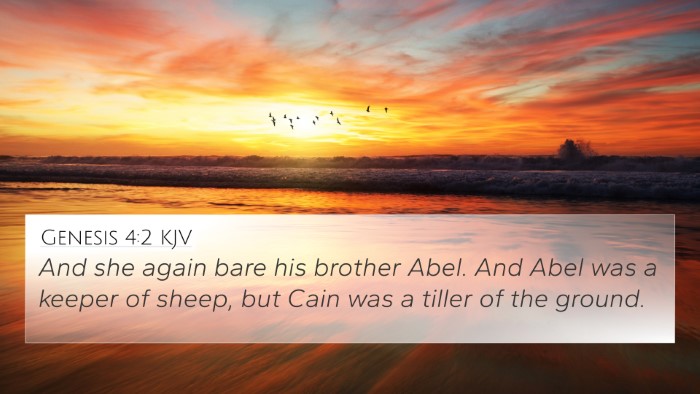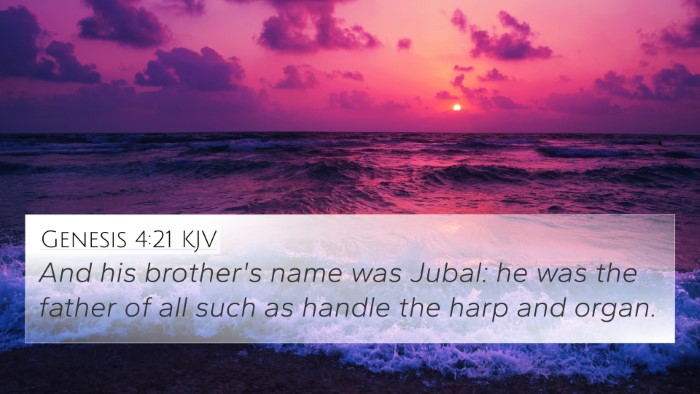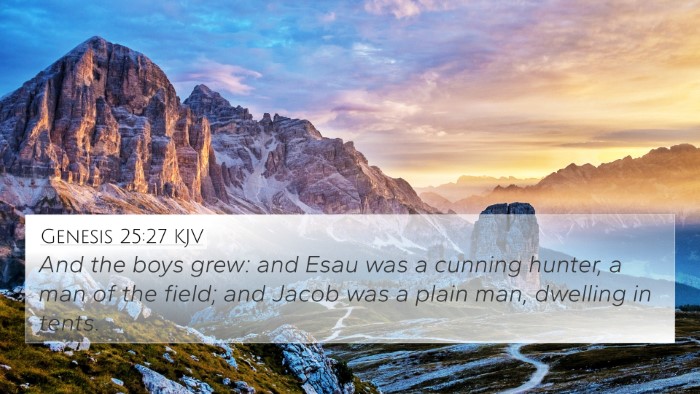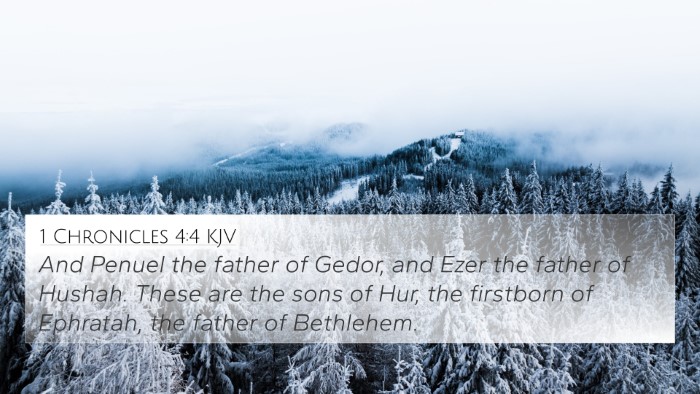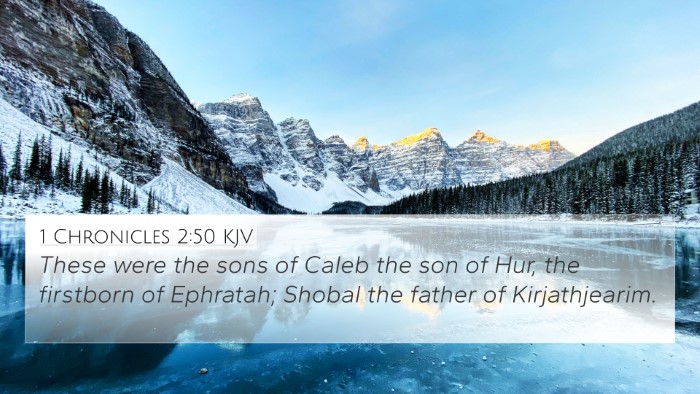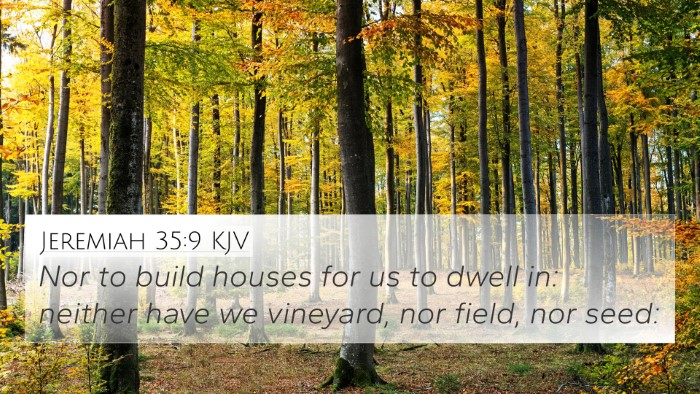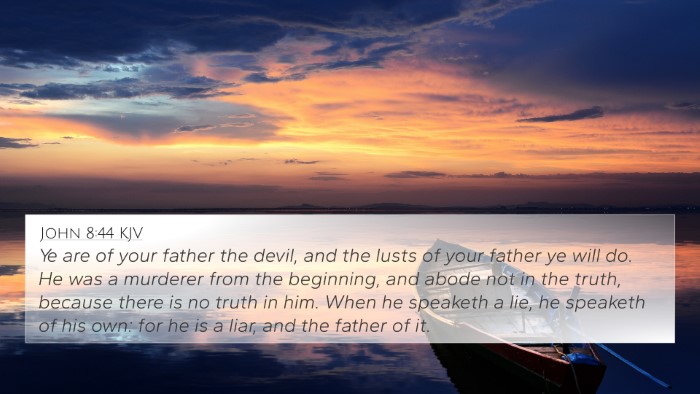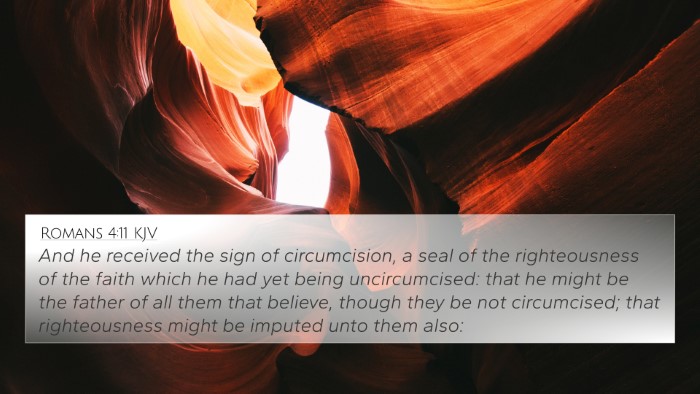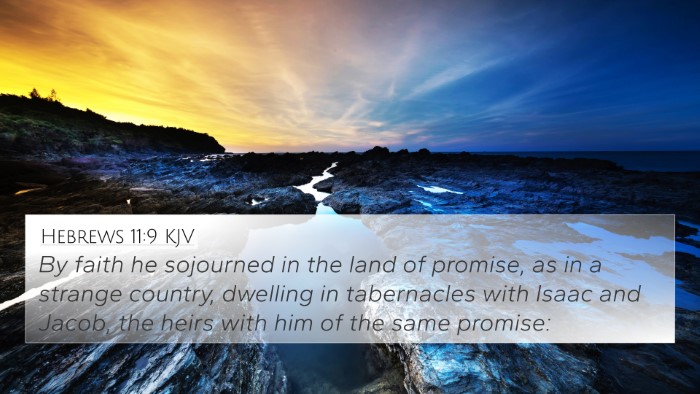Understanding Genesis 4:20
Genesis 4:20 states: "And Adah bore Jabal: he was the father of such as dwell in tents and of such as have cattle." This verse introduces Jabal, a significant figure in the early development of civilization. Below is a comprehensive analysis of its meaning drawn from public domain commentaries.
Context and Background
In the context of Genesis 4, we observe the lineage of Cain, where the consequences of Cain's actions unfold through his descendants. This chapter presents the birth of various figures who contributed to the shaping of human culture, reflecting both achievements and the continuing theme of humanity's separation from God.
Commentary Insights
-
Matthew Henry:
Henry emphasizes that Jabal's role as the father of herdsmen illustrates humanity's early steps toward specialization in occupations. He interprets this as evidence of God's common grace in providing skills and abilities that allow for societal advancement.
-
Albert Barnes:
Barnes notes Jabal's association with nomadic life and the raising of livestock, highlighting the transition from a hunter-gatherer lifestyle to settled agricultural and pastoral societies. This change marks a vital development in human existence.
-
Adam Clarke:
Clarke explains that Jabal's founding of tent-dwelling cultures indicates the beginning of human ingenuity. He points out that tents represent both mobility and the adaptation to landscapes, reflecting human resilience and resourcefulness.
Key Themes and Connections
Genesis 4:20 showcases several pivotal themes:
-
Cultural Development: Jabal symbolizes the progression of agriculture and animal husbandry, underscoring the human capacity for innovation.
-
Family Lineage: This verse contributes to the genealogy of Cain, suggesting that even in rebellion against God, humanity continued to flourish and multiply.
-
God's Grace: Jabal’s success reflects God's common grace, as He allows civilization to develop despite humanity's fallen state.
-
Human Ingenuity: The verse highlights the emergence of skills necessary for survival, showcasing how early humans adapted to their environment.
Bible Cross References
For comprehensive understanding, examining cross-references provides valuable insights:
- Genesis 4:21: Jabal’s brother Jubal is recognized for his contributions to music, linking cultural advances.
- Genesis 4:22: This verse discusses Tubal-cain, connecting craftsmanship in metalwork, indicating diversification in skills.
- Genesis 1:28: God’s command to “be fruitful and multiply” resonates with the themes of growth and civilization establishment.
- Genesis 9:20: Noah’s role as a husbandman illustrates the continuity of agricultural practices from creation through the flood.
- Job 1:3: Job’s wealth in livestock parallels Jabal’s influence, emphasizing the importance of cattle in prosperity.
- Psalms 107:37: The cultivation of fields is mentioned here, showcasing agricultural achievements similar to those represented by Jabal.
- Hebrews 11:4: The mention of Abel’s offering highlights the significance of a pastoral lifestyle in worship.
Conclusion
In summary, Genesis 4:20 provides foundational insights into early civilization, reflecting themes of innovation, adaptation, and the complexities of human relationships with God and the environment. By linking with other Bible verses, a deeper understanding arises, allowing us to appreciate the multifaceted nature of Scripture.
